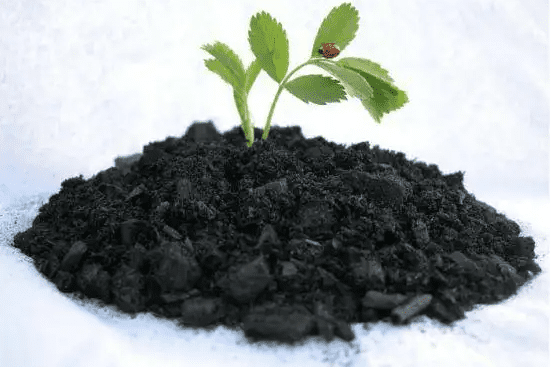The coconut shell charring machine has emerged as a highly significant and innovative piece of equipment in recent times, revolutionizing the way coconut shell waste is managed and transformed into valuable resources.

Raw Material
Coconut shells, which are the principal input for this machine, are abundantly available in tropical regions around the globe. These areas, where coconut trees thrive in large numbers, witness a continuous supply of coconut shells. After coconuts are either consumed for their water and flesh or processed for coconut oil and other derivatives, the remaining shells present a vast potential. Coconut shells possess a distinctively fibrous and extremely hard structure. This inherent characteristic makes them an ideal candidate for the charring process. Their composition allows them to withstand high temperatures and undergo a transformation into charcoal, unlocking a new realm of utility.
Applications
1. Fuel
Coconut shell charcoal has gained immense popularity as a fuel source. It exhibits a notably high calorific value, meaning it can release a substantial amount of heat when burned. Moreover, when used in combustion, it produces a relatively clean flame. This is in contrast to several other forms of charcoal that tend to emit copious amounts of smoke. Its clean-burning property makes it a preferred choice for cooking applications. It is widely utilized in barbecue grills, where it imparts a unique flavor to the food being cooked. Additionally, in many traditional stoves in various parts of the world, especially in regions with easy access to coconut shells, it serves as a reliable and efficient fuel for daily cooking needs.
2. Water Filtration
The porous structure of coconut shell charcoal is the key to its effectiveness in water filtration. The numerous pores and crevices within the charcoal act as tiny traps. They have the ability to adsorb a wide range of impurities, including heavy metals such as lead, mercury, and cadmium, as well as certain organic compounds that may be present in water. This adsorption process significantly improves the quality of water, making it safer for consumption. It finds application in both domestic water purifiers, where it helps in providing clean and healthy drinking water to households, and in industrial water purification systems, which require large-scale treatment of water for various manufacturing and processing operations.
3. Soil Amendment
When incorporated into soil, coconut shell charcoal brings about multiple benefits. It acts as a soil conditioner, enhancing the overall fertility and structure of the soil. Its porous nature enables it to retain moisture, which is crucial for plant growth, especially in arid or semi-arid regions. By improving soil aeration, it allows the roots of plants to access oxygen more easily, promoting healthy root development. Furthermore, it provides a favorable habitat for beneficial microorganisms such as bacteria and fungi. These microorganisms play a vital role in decomposing organic matter, releasing essential nutrients, and suppressing harmful pathogens, thereby creating an optimal environment for plant growth and productivity.
Advantages
1. Environmental Friendly
One of the most prominent advantages of the coconut shell charring machine is its positive impact on the environment. By converting what would otherwise be considered waste into useful charcoal, it addresses the issue of waste disposal. In regions where coconut shell waste used to accumulate and pose a disposal challenge, the machine offers a sustainable solution. It promotes the recycling and utilization of a natural by-product, reducing the pressure on forests. Traditionally, charcoal production often led to deforestation as trees were cut down to obtain wood for charring. However, with the use of coconut shell charring machines, this need is minimized, contributing to the conservation of forests and biodiversity.
2. High-Quality Charcoal Production
The design and engineering of the coconut shell charring machine are focused on ensuring the production of top-notch charcoal. It incorporates advanced technologies and precise control mechanisms. These enable the operator to regulate the charring process with great accuracy. Parameters such as temperature, heating time, and air supply can be carefully adjusted to achieve the desired carbonization level. This results in charcoal with consistent physical and chemical properties, such as uniform porosity, appropriate hardness, and a stable carbon content. Such high-quality charcoal is not only more efficient in its applications but also commands a better market value.
3. Energy Efficiency
Modern coconut shell charring machines are a testament to technological advancements in energy efficiency. They are equipped with state-of-the-art heating systems that optimize the transfer of heat to the coconut shells. Additionally, effective insulation materials are used to minimize heat loss during the charring process. This combination of efficient heating and insulation reduces the overall energy consumption required to convert coconut shells into charcoal. As a result, the operational costs are significantly lowered, making the process more economically viable. Moreover, reduced energy consumption also implies a lower carbon footprint, aligning with global efforts towards sustainable energy use.
4. Versatility
Beyond the primary function of charcoal production, many coconut shell charring machines offer additional capabilities. Some models are designed to extract other valuable by-products during the charring process. For instance, coconut shell vinegar can be produced, which has its own set of applications in the food and beverage industry, as well as in household cleaning and disinfection. Bio-oil can also be obtained, which can potentially be used as a fuel or a feedstock for the production of chemicals. This versatility further enhances the economic potential of the coconut shell charring process, making it a more comprehensive and profitable venture.
Conclusion
In conclusion, the coconut shell charring machine stands as a remarkable technological innovation. It not only efficiently utilizes coconut shell waste but also yields a diverse range of valuable products with extensive applications. Its advantages spanning environmental protection, high-quality production, energy efficiency, and versatility establish it as an indispensable asset in multiple industries. It paves the way for sustainable development by maximizing the value derived from a natural resource and minimizing the negative impacts on the environment.






